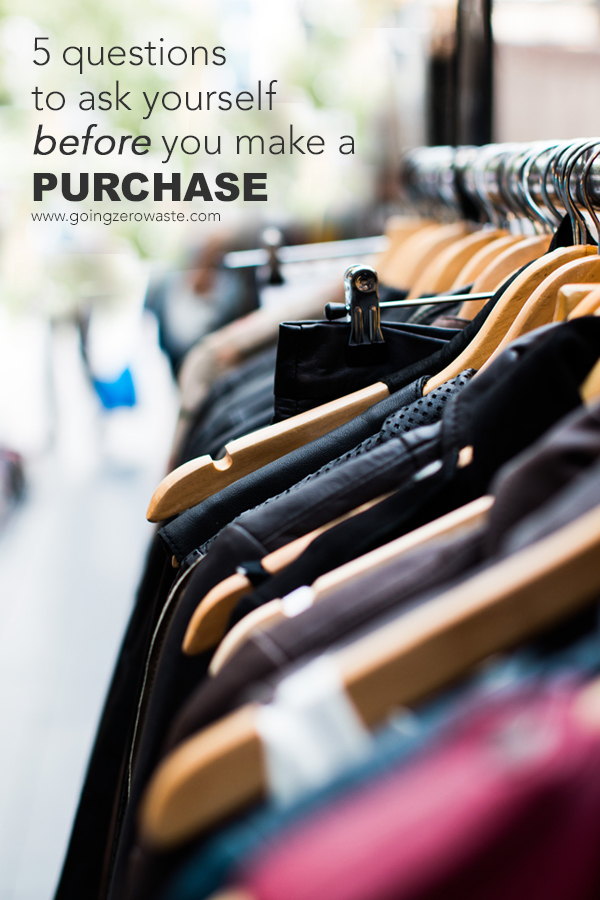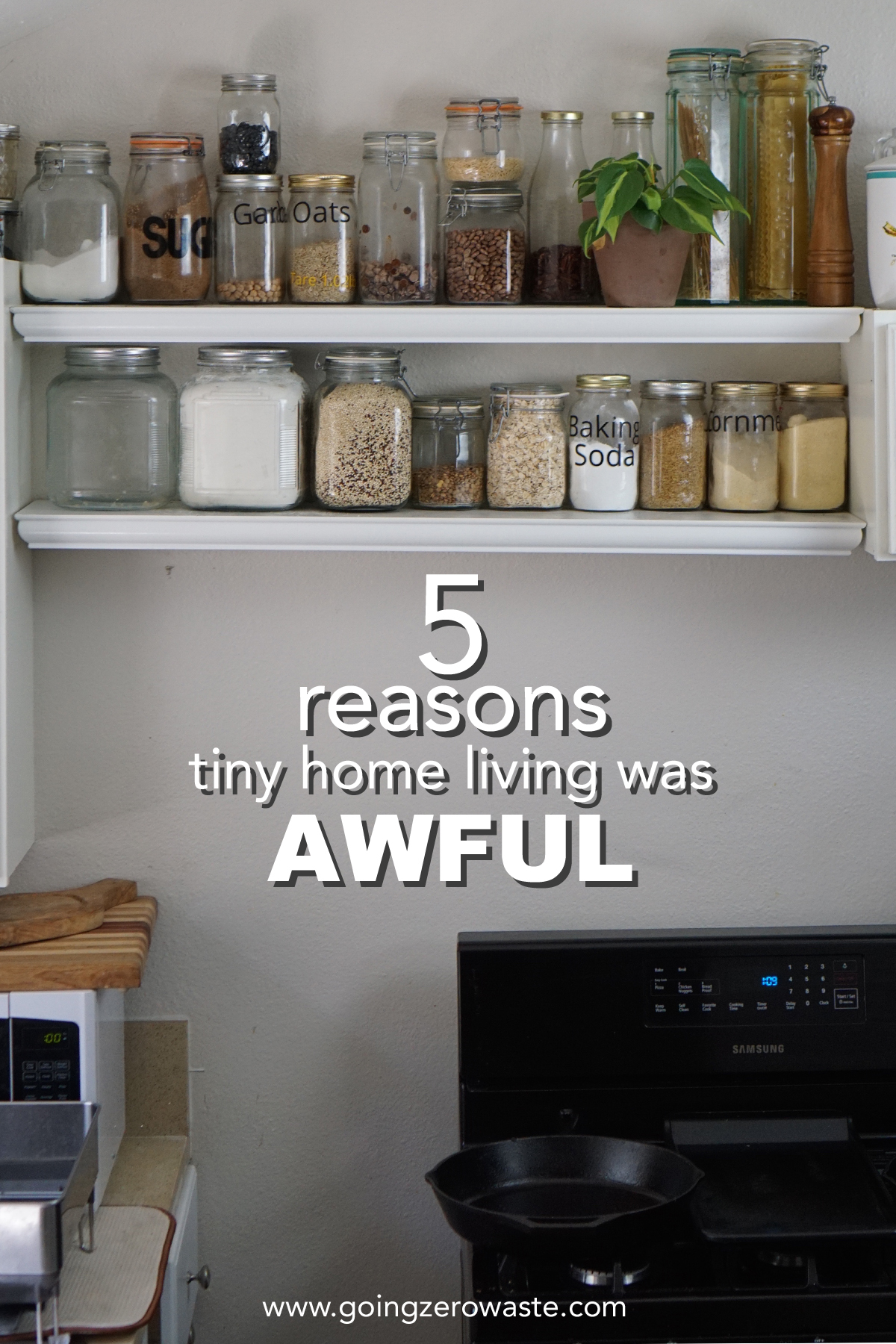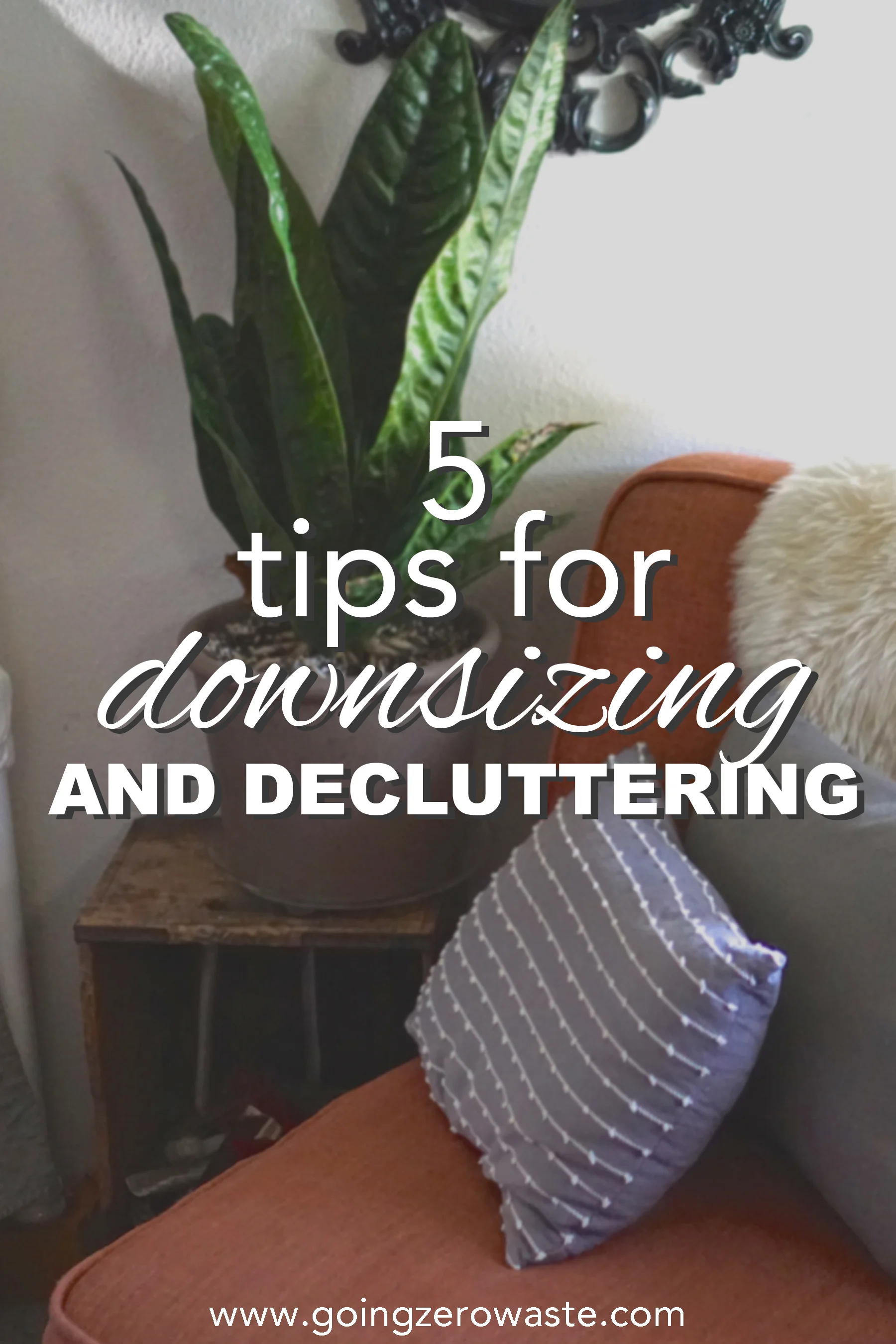There's a belief that decluttering and zero waste stand in opposition to one another, but I firmly believe both principles to be very complementary.
We are detached from the stuff we purchase and own. When we go zero waste, plastic free, or go down the path of minimalism, we experience a re-awakening and a connection with our consumerism.
What we once used to consume blindly, we're now hyper aware. This not only applies to new things crossing our threshold, but all of the stuff that's living in the basement, the attic, and in the far reaches under our bed.
Once we start experiencing this connection with our stuff and our consumerism, we begin to ask ourselves a lot of questions like... how did I consume SO much, and why did I waste so much money?
1. why it's important to declutter:
The reason it's important to declutter is to redistribute your resources. It's important that we start looking at things as resources.
There are no wild blenders people pick from trees. Although, imagining a blender tree is pretty hilarious.
All of our stuff is created from a lot of different resources. It takes a lot of energy to assemble and distribute. Our items have a long history before they come into our possession.
If you have stuff that's in good condition, why not pass those resources off to someone else?
2. saving new resources:
When you redistribute your resources, you're actually saving new resources from being extracted.
Conserving resources is directly related to living a zero waste lifestyle, and I believe this to be the biggest correlation between decluttering and zero waste.
Of course, you should't donate the things you truly need, but how many of those things do you truly need?
If you haven't used it in a year, you could probably donate it. There are a lot of items you might only reach for once a year like camping gear. When Justin and I went camping we borrowed a lot of our gear from friends.
If you have something you use only once a year consider donating it if you can borrow it from a friend or family member. See if your town has a library of things near by.
You can check stuff out of a library of things, this way everyone can enjoy activities without having to invest in the equipment and it allows for lower resource consumption. The sharing economy is amazing for items you use infrequently.
3. gaining more time and money:
When you donate objects you, you gain more time. Think of all the time you're going to be spending decluttering. There's also repair and maintenance time for each item you own.
The less you own, the less time you have to focus on these tasks. You're also putting money in your pocket. Stuff takes up a lot of space. Think of all the money you spend on heating, cooling, and maintaining your stuff.
By downsizing your belongings, could you downsize your home and save money?
4. it's mentally refreshing:
Having a clear space is mentally refreshing! You have breathing room. It's so peaceful to have drawers that easily close, and have space to display the things you truly care about.
Excess stuff, takes away from the things that your truly love, and having a clear space inspires more creativity and allows you to perform daily tasks with ease.
If you wake up to a sink full of dirty dishes, it doesn't inspire you to make breakfast. (At least not me!) I have to have a clean kitchen before I start cooking.
After decluttering there's ample space to store everything. It feels good to put everything in it's place, and when it feels good to put everything away, you're so much more likely to do it!
Then you can wake up to clean kitchen and make yourself a lovely breakfast.
5. don't dump it off at the thrift store:
Once you've gone through all of your belongings and pinpointed the items you can live without, do not give into the urge to box it all up and drop it off at your nearest Goodwill.
When you drop en masse, there's a chance it won't even wind up on the shelves. There's just SO much stuff to be sorted and processed.
If your stuff makes it to the shelves, there's a possibility that it won't sell. Then it goes to the outlets, is recycled, sent to the landfill, or winds up in another country.
If this is your only option, it's much better than throwing it away, but try some of the other methods first!
6. sell:
If your items are in good condition, why not try to sell them? You can sell locally like on Craigslist. This is great if you have a furniture, appliances, or kitchen wares.
If you have a lot of stuff, maybe organize a garage sell. Try and go in with neighbors to make it more of an event. This will draw more foot traffic.
If you have smaller items that are easier to ship, maybe list on eBay.
7. give to friends:
Giving to friends is one my favorite ways to share the love. Never force an item on a friend or family member, but you can ask if they need X,Y, or Z.
Especially if it's something they constantly comment on. I have a friend who tells me how much she wants my shirt every time I wear it. If I were ever to donate that shirt, of course, I'd ask her if she wants it first!
Plus, if she took it and I wanted to wear it... I could always borrow it. ;)
8. find specific charities:
Look for specific charities that will take certain items or just think a little outside of the box. If you have a whole bunch of art supplies, maybe the art teacher at your local school would like to have them.
If you have musical instruments, could you help out the school or community band? If you have a ton of formal wear, can you donate it to a place that accepts prom dresses for girls who might not be able to afford one?
If you have a lot of extra bedding, maybe your local animal shelter would like that!
You'd be amazed, how many local places you can help with your donations, it just takes a little out of the box thinking.
I hope this guide helps you the next time you clean out your home and that it gives you a little inspiration for decluttering the zero waste way.












